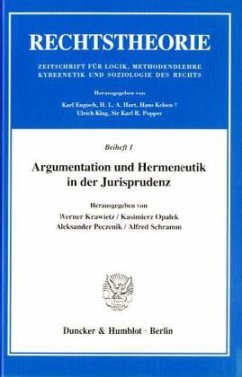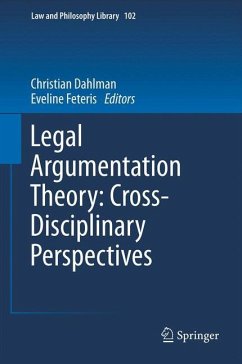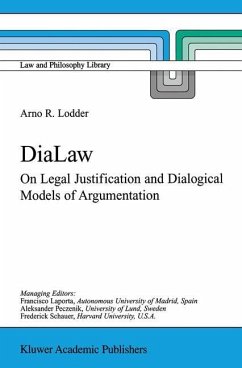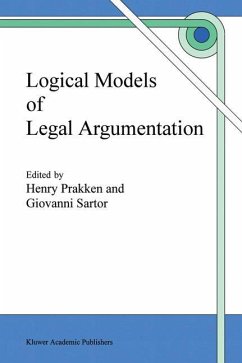
Affective Legal Analysis.
On the Resolution of Conflict.
Versandkostenfrei!
Versandfertig in 6-10 Tagen
74,90 €
inkl. MwSt.

PAYBACK Punkte
0 °P sammeln!
Indeed, if the legal field is to be understood as instrumental to democracy's cohabitation of individuals, research on dispute resolution remains pre-eminent as a means to understand how individual views differ and how different views can be overcome. As a central part of conflict analysis, such research would assist an interdisciplinary quest for a dynamic understanding of democracy and law. It would focus on how different individuals with different conceptions of the good can live together in their community, in their world. Scientific research in the fields of communication, economics, psyc...
Indeed, if the legal field is to be understood as instrumental to democracy's cohabitation of individuals, research on dispute resolution remains pre-eminent as a means to understand how individual views differ and how different views can be overcome. As a central part of conflict analysis, such research would assist an interdisciplinary quest for a dynamic understanding of democracy and law. It would focus on how different individuals with different conceptions of the good can live together in their community, in their world. Scientific research in the fields of communication, economics, psychology, history, political theory and philosophy, to name but a few, would side with legal theory in a shared ambition to analyze the way individuals are affected by their views as well as by their institutions, in order to provide society with a dynamic means to solve conflicts and enhance citizenship or legal awareness. Such research necessarily coincides with empathy-oriented education, directed towards an understanding of different conflict positions and the related comprehensive or non-comprehensive views affecting them. An affective education, analyzing all affective mechanisms of societal or interpersonal disputes and their legal or alternative resolution. A clinical education, offering an interactive simulation with regard to these positions and their affective impact, demonstrating how individual views continuously affect the positions taken, how disputes are affected by the legal or other institutions that attempt to solve them, and how the effectiveness of legal or other solutions to the conflict at hand depends on a practice of affective legal analysis. Thus legal and civic education, by way of affective narration and clinical simulation, join affective legal analysis in its endeavor to provide society with a similarly affective and non-rationalizing approach of legal awareness.












